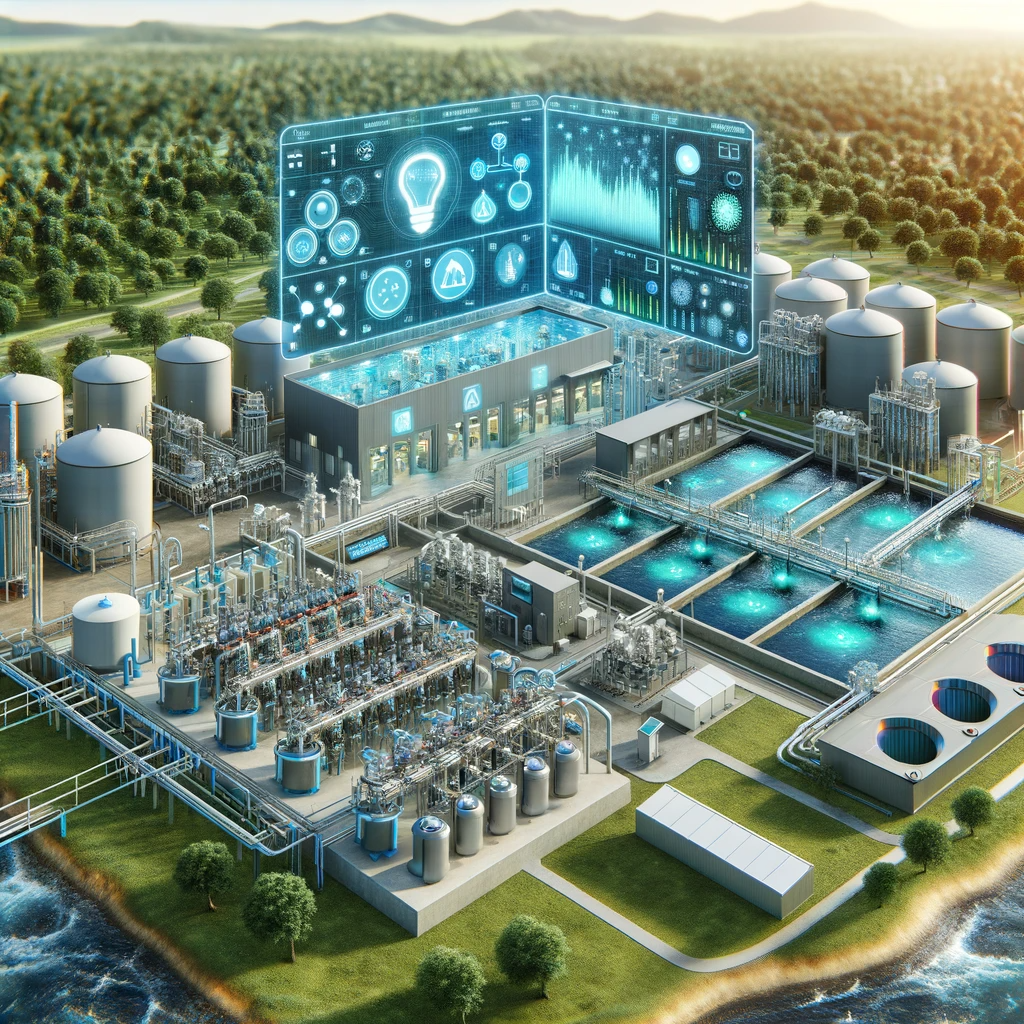Water, the essence of life, is an invaluable resource that sustains our planet’s ecosystems, industries, and human existence. Effective water resource management is not merely a matter of convenience but a vital necessity for our growing population and changing climate. The conventional methods of managing water resources are facing increasing challenges in meeting the demands of a world in flux.
However, the dawn of the artificial intelligence (AI) era has brought with it a glimmer of hope for smarter and more efficient water resource management. AI, with its capacity for rapid data analysis and predictive capabilities, has emerged as a formidable tool in addressing the complexities of water management.
In this article, we embark on a journey to explore how AI is reshaping the landscape of water resource management. We will delve into AI’s role in predicting water demand, detecting leakages, and optimizing water distribution. By harnessing the power of AI, we are revolutionizing the way we approach one of our planet’s most critical resources.
In the following sections, we will uncover the pivotal role of water resource management, the limitations of traditional practices, and the emergence of AI as a transformative force in this domain. As we navigate through the applications and challenges of AI-driven water management, it becomes evident that the synergy between technology and environmental stewardship holds the key to a sustainable and water-secure future.
The Vital Role of Water Resource Management
Understanding Water Resource Management: Water resource management is the art and science of responsibly allocating, preserving, and distributing water resources to meet societal and ecological needs. It plays a pivotal role in ensuring a sustainable and reliable water supply for communities, agriculture, and industries. The challenge lies in maintaining a delicate balance between water supply and demand, especially in regions facing water scarcity.

Challenges in Conventional Water Management: Traditional water management practices, while effective in their time, are increasingly strained by evolving demands and environmental changes. The rigid nature of these approaches often leads to inefficiencies in resource allocation, water wastage, and infrastructure vulnerabilities. As populations grow, climate patterns shift, and water quality concerns rise, the need for smarter and more adaptable solutions becomes evident.
The AI Revolution in Water Management
The Emergence of AI in Water Resource Management: Artificial intelligence, once confined to the realms of science fiction, is now a reality that is revolutionizing water resource management. AI’s capacity to analyze vast datasets and make predictions based on historical and real-time information has ignited a transformative era in water management. It enables decision-makers to optimize water resource systems with unparalleled precision.
AI-Powered Data Analysis: AI’s true strength lies in its ability to process and make sense of massive volumes of water-related data. Whether it’s data from sensors, satellite imagery, or weather forecasts, AI can analyze information at speeds and accuracies that surpass human capabilities. This capacity opens doors to proactive, data-driven decision-making that enhances the efficiency and sustainability of water resource management.
Predictive Analytics for Demand Management
AI-Driven Demand Prediction: AI algorithms excel in predicting water demand patterns by harnessing historical data, consumption trends, and real-time information. This predictive capability allows water utilities to anticipate fluctuations in demand, plan accordingly, and ensure a consistent supply to consumers. The result is improved resource allocation and reduced water wastage.
Optimizing Water Distribution: AI extends its influence to optimize the distribution of water resources. AI-optimized systems can dynamically adjust water flow rates, pressure, and distribution routes based on demand and infrastructure conditions. This level of responsiveness minimizes losses due to pipe leaks, reduces energy consumption, and ensures efficient water distribution.
Detecting and Preventing Leakages
AI-Based Leak Detection: AI is a game-changer in identifying leaks within water infrastructure. AI sensors and algorithms can pinpoint leaks with remarkable accuracy, even in extensive and complex networks. Early leak detection not only saves valuable water resources but also prevents costly infrastructure damage and environmental harm.
Preventive Maintenance: AI-driven maintenance schedules go beyond fixing leaks. They proactively address potential issues in water infrastructure, preventing costly failures and service interruptions. AI can analyze data from various sources to predict when pipes, pumps, or treatment facilities may require maintenance or replacement.
Ethical and Environmental Considerations
Ethical Implications: The integration of AI into water management raises ethical concerns regarding data privacy, transparency, and decision-making accountability. Responsible data handling, clear consent processes, and transparent AI-driven decisions are essential to ensure ethical AI usage in water resource management.
Environmental Impact: AI offers opportunities to reduce water wastage, energy consumption, and environmental impact. By optimizing water distribution and preventing leaks, AI contributes to more sustainable water management practices. This, in turn, supports efforts to protect ecosystems and conserve water resources.
Challenges and Future Directions
Overcoming Challenges: AI-driven water management is not without its challenges, including data quality, integration of AI systems with existing infrastructure, and addressing potential biases in algorithms. Collaborative efforts among governments, organizations, and technology providers are crucial to overcoming these hurdles.
The Future of Smart Water Resource Management: The future of water resource management is intrinsically tied to the evolution of AI technology. Continued advancements in AI, coupled with real-world testing and refinement, hold the promise of more efficient and sustainable water management practices. The global implications of AI-driven water resource management are significant, offering a pathway to a water-secure world.

In conclusion, AI’s integration into water resource management heralds a new era of efficiency, sustainability, and environmental stewardship. By harnessing AI’s capabilities in predicting demand, detecting leakages, and optimizing distribution, we have the tools to revolutionize the way we manage one of Earth’s most critical resources. However, as we embrace AI-driven solutions, it is imperative to navigate ethical considerations and address challenges collaboratively. The future of smart water resource management, powered by AI, offers the promise of a water-secure world where technology and environmental sustainability coexist harmoniously.
